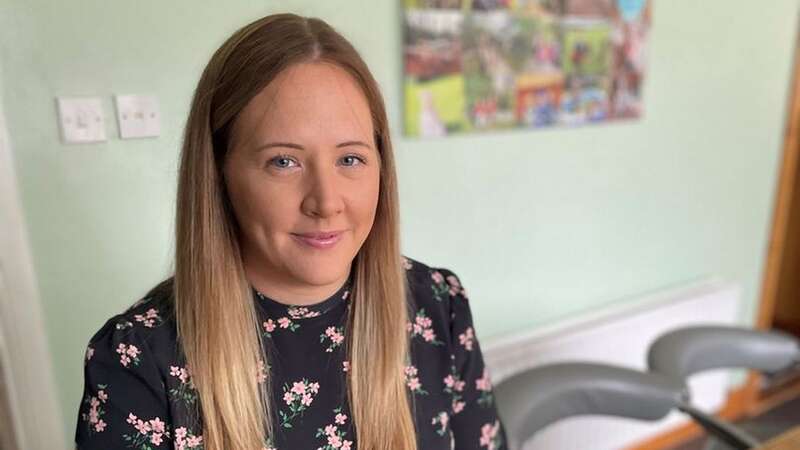A cancer patient is urging all women to attend vital appointments that can be overlooked - and says they could save your life. Andrea Barker issued the advice after she was diagnosed with cervical cancer.
The 39-year-old only discovered her 'shock' diagnosis after going to her GP about an unrelated medical issue. And it was purely down to her doctor noticing that her cervical screening test was overdue.
Now Andrea is urging all women to prioritise their cervical screening following her diagnosis with stage 1 cervical cancer in July 2023. She said: "Cervical screening can save lives. Please don’t put it off."
Around 3,300 new cases are diagnosed in the UK every year, according to Cancer Research. The condition mostly affects women under the age of 45, the NHS says.
Andrea said her worries grew when she was contacted by her hospital after taking the test. She said she immediately feared there must be something serious when they told her something 'abnormal' had shown up.
 Brit 'saw her insides' after being cut open by propeller on luxury diving trip
Brit 'saw her insides' after being cut open by propeller on luxury diving trip
The 39-year-old from Downpatrick in Northern Ireland said the diagnosis left her in shock. She even urged her family and friends to get smear tests as soon as possible.
In a sign of the difference such simple advice can make, they all did straight away. And Andrea believes the early detection of her cancer was vital.
“The outcome for me could have been a lot different," she said. "I was so lucky it was caught in the early stages.
"Cervical screening can save lives. Please don’t put it off.
"If you are anxious in any way about attending, talk to your GP or nurse. They will make you feel at ease. It can truly make a difference in your life.”
She is today hugely grateful to her GP. Andrea had initially visited her doctor for an unrelated medical issue. Seeing an opportunity to conduct a screening during her visit, Andrea’s GP performed a cervical screening test.
The results that followed detected the presence of stage 1 cervical cancer. Andrea said: “When the hospital contacted me following my screening test to say there was something abnormal had shown up, I guessed that it was something more serious," she said. “Receiving the diagnosis was a shock, but it has made me incredibly grateful for the diligence of my GP.
"It highlights the importance of not delaying these vital tests. At the time, I urged my family and friends to go and get their smear tests carried out as soon as possible - they all went straight away."
Andrea’s diagnosis came as a result of a timely cervical screening test. Health officials say that highlights the critical importance of regular screenings in the early detection and treatment of cervical cancer.
Andrea is now encouraging women to attend their cervical screening appointments. She emphasises that early detection through these screenings can lead to more effective treatment and better outcomes.
 Cowboy gored to death by bull in New Year's Eve rodeo tragedy
Cowboy gored to death by bull in New Year's Eve rodeo tragedy
Andrea says her message is clear: do not ignore the call for cervical screening. Make the appointment, take the test, and protect your health, she says.
Clinical nurse specialist Paula Dempster added: “Attending for your cervical screening is one of the most important things that you can do to protect yourself from the risk of cervical cancer."
What are the symptoms of cervical cancer?
According to the NHS, the key signs to watch for are:
- pain in your lower back, between your hip bones, or in your lower tummy
- pain during sex
- changes to vaginal discharge
- vaginal bleeding that is unusual for you – "including bleeding during or after sex, between your periods or after the menopause, or having heavier periods than usual"
Read more similar news:
Comments:
comments powered by Disqus


































